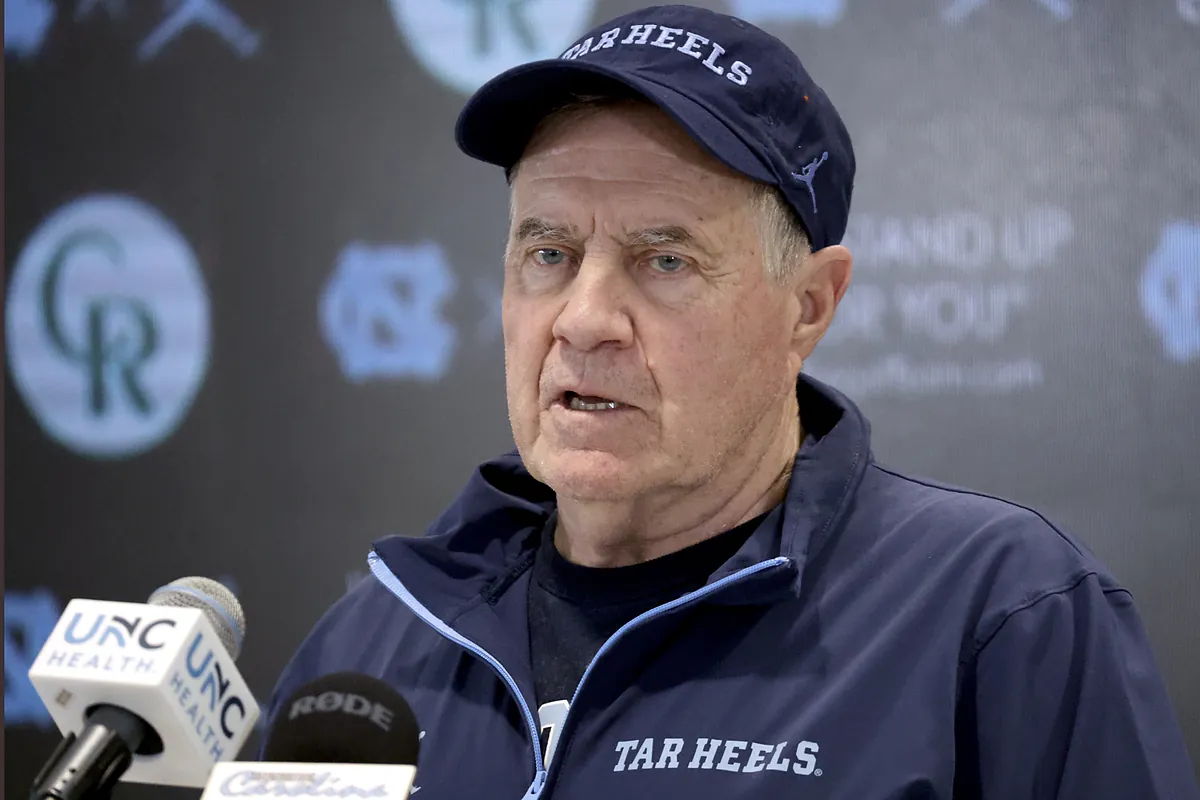

Tensions are resurfacing between Bill Belichick and New England Patriots owner Robert Kraft after the latter referred to Belichick’s 1999 hiring as a “big risk”.
Belichick, now leading the North Carolina Tar Heels football program, responded publicly, arguing that accepting the Patriots job was just as risky for him due to internal issues within the organization.
Falcons take playful jab at Bill Belichick and Jordon Hudson in 2025 schedule release
While appearing on the Dudes on Dudes podcast last month, Kraft reflected on the bold decision to trade a first-round pick to secure Belichick. “I got hammered in the Boston area, but he was with us for 24 years, and we did OK,” Kraft said, calling the move “a big risk.”
Belichick responded in an interview with ESPN: “As I told Robert multiple times through the years, I took a big risk by taking the New England Patriots head coaching job. I already had an opportunity to be the Head Coach of the New York Jets, but the ownership situation was unstable.”
He added that he’d been advised by former coaches and insiders that the Patriots’ job came with “many internal obstacles.” Belichick made it clear that entering New England would require sweeping changes in roster management and team structure to restore success.
Belichick and Kraft disagree over the risk
To Kraft, acquiring Belichick – despite his 36-44 record in Cleveland – proved to be the singular best decision of his ownership career, culminating in six Super Bowl victories. Kraft’s narrative frames the pick-and-hire as a masterstroke that reshaped the franchise.
Belichick, however, paints a different picture. Instead of crediting Kraft’s gamble, he focused on his own risk in leaving a Jets opportunity and entering a Patriots organization grappling with salary cap issues and internal strife.
He emphasized that transforming the team required more than coaching-it demanded wholesale organizational change. Their memories diverge sharply: one sees a historic investment, the other recalls a daunting bet.
The rift goes deeper than a disagreement over risk. Belichick notably omitted any mention of Kraft from The Art of Winning: Lessons from My Life in Football, though the book acknowledges 363 other individuals.
Belichick defended the decision, stating, “The book is about my life lessons in football and it’s really more about the ones I experienced directly,” when interviewed on CBS Sunday Morning.
He further downplayed the nature of his departure: “It was a mutual decision for us to part ways,” he said, countering Kraft’s suggestion that he had been fired.
Split exacerbated their rift
Their split followed consecutive losing seasons in 2022-23, including a dismal 4-13 finish in Belichick’s final year. Kraft has described his exit as a firing, but Belichick insists it was both parties choosing a new direction.
With Belichick now at the helm of the North Carolina Tar Heels and Kraft ushering in a post-Belichick era for the Patriots under Mike Vrabel, both sides have moved on professionally – but not personally. Their recent comments reveal unresolved tensions and differing interpretations of legacy, leadership, and risk.
As the Patriots seek a return to prominence and Belichick begins a new chapter in college football, their ongoing public sparring suggests there’s more to come. Both men shaped a dynasty that dominated the NFL for decades – and both clearly want to define its lasting narrative, on their own terms.
Whether this disagreement fades as time passes or deepens as seasons unfold, one thing is clear: the rivalry between Kraft and Belichick isn’t just on the field – it’s in the record books of history, too.
This news was originally published on this post .




Be the first to leave a comment